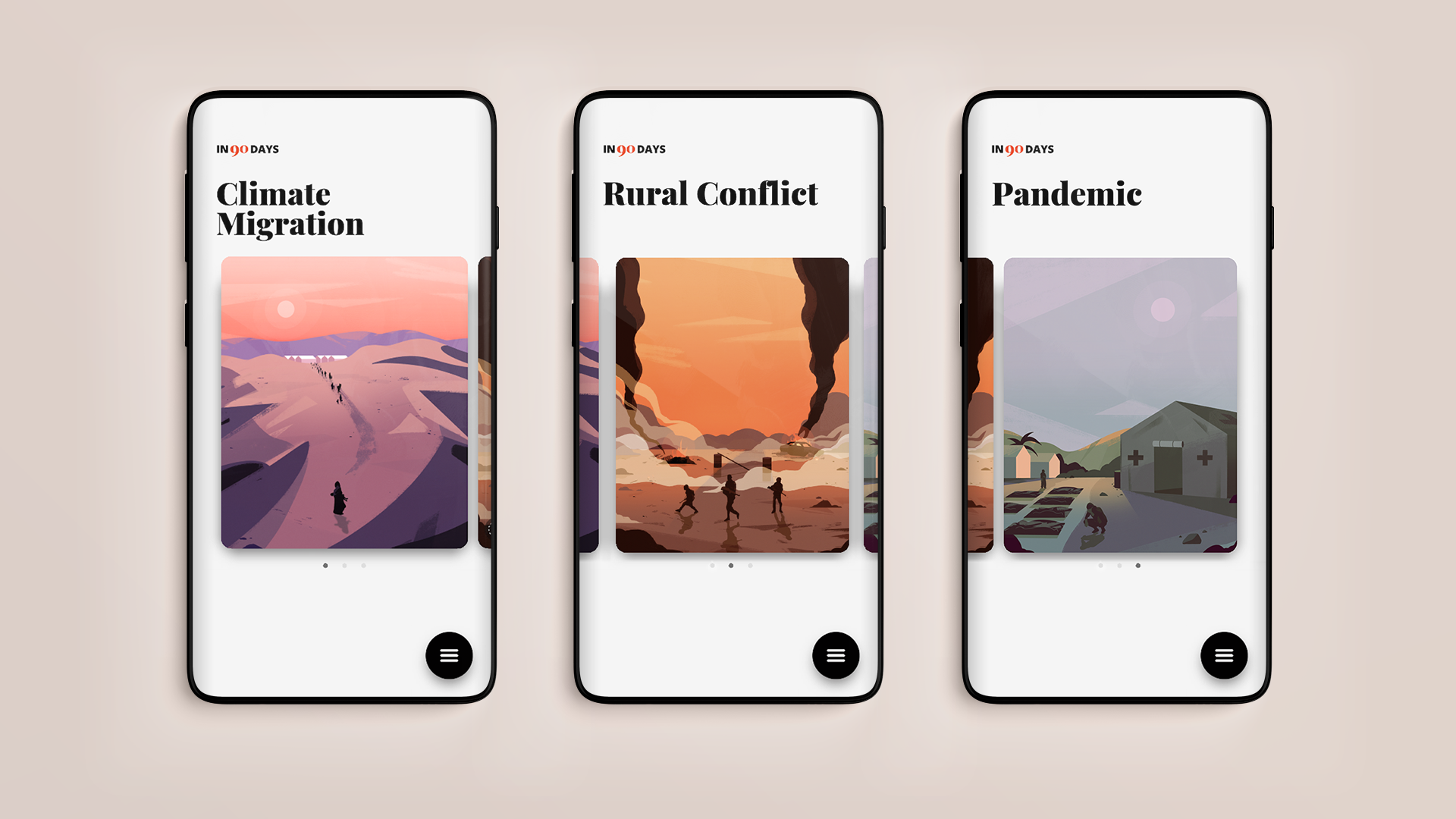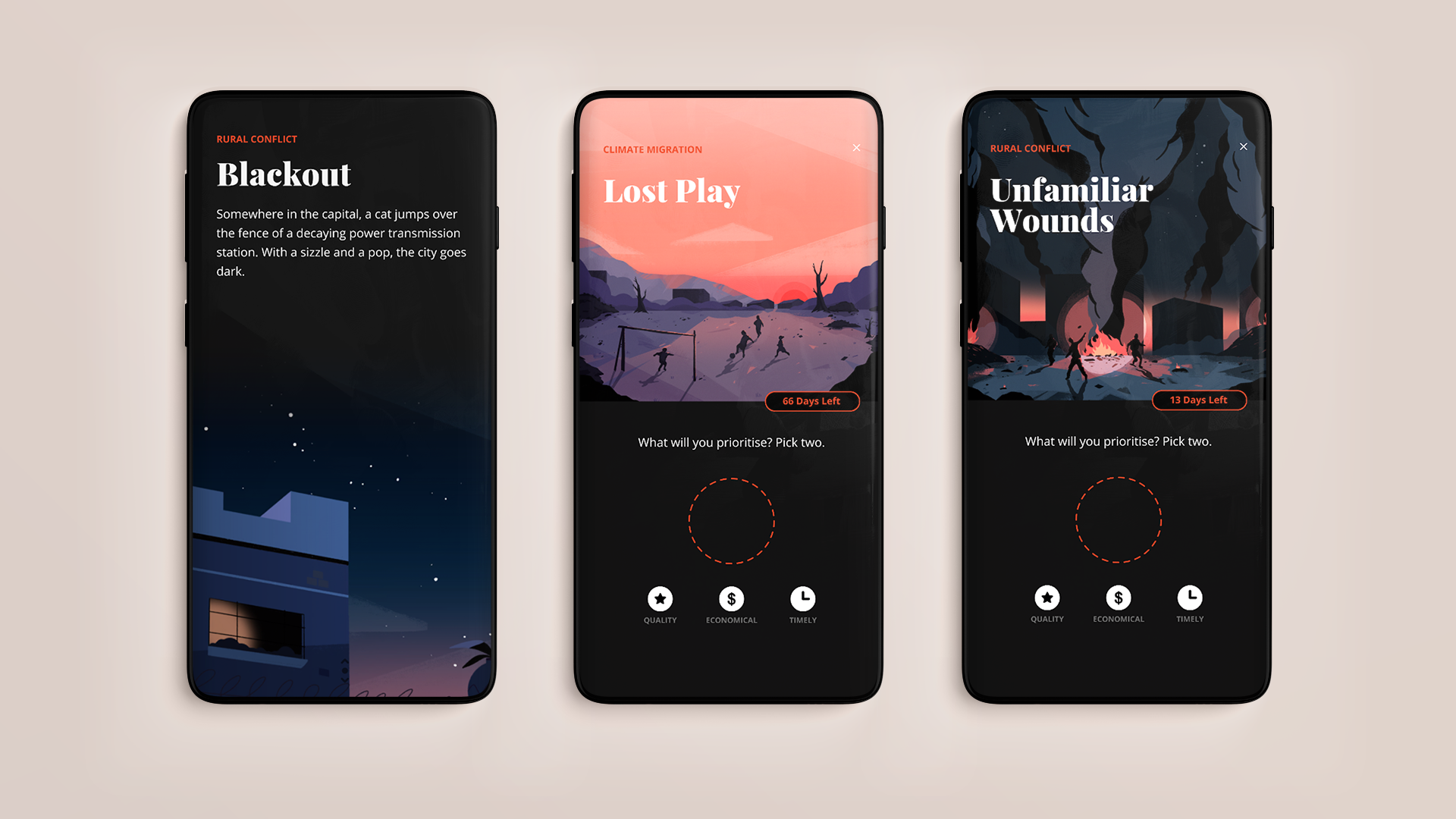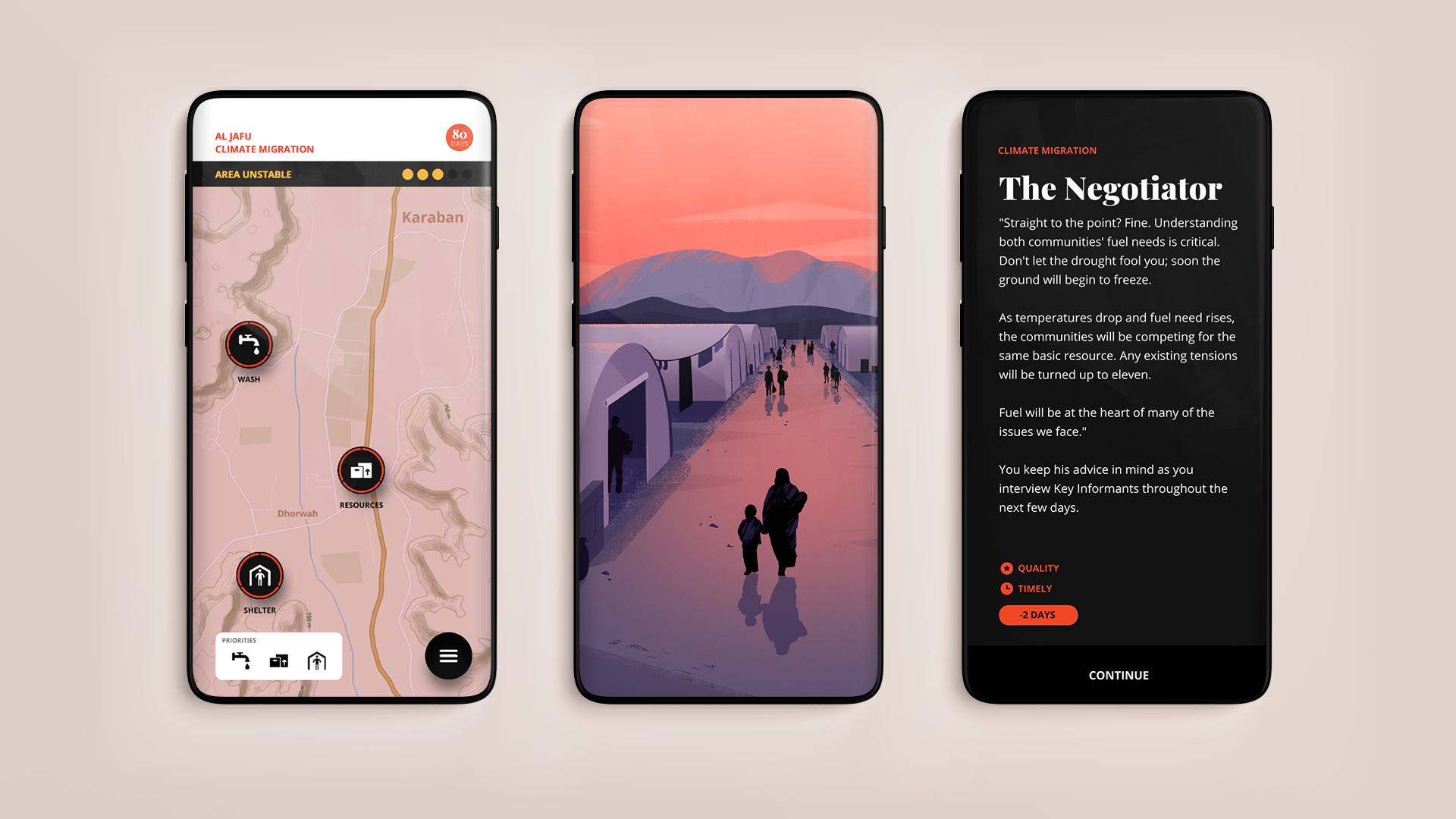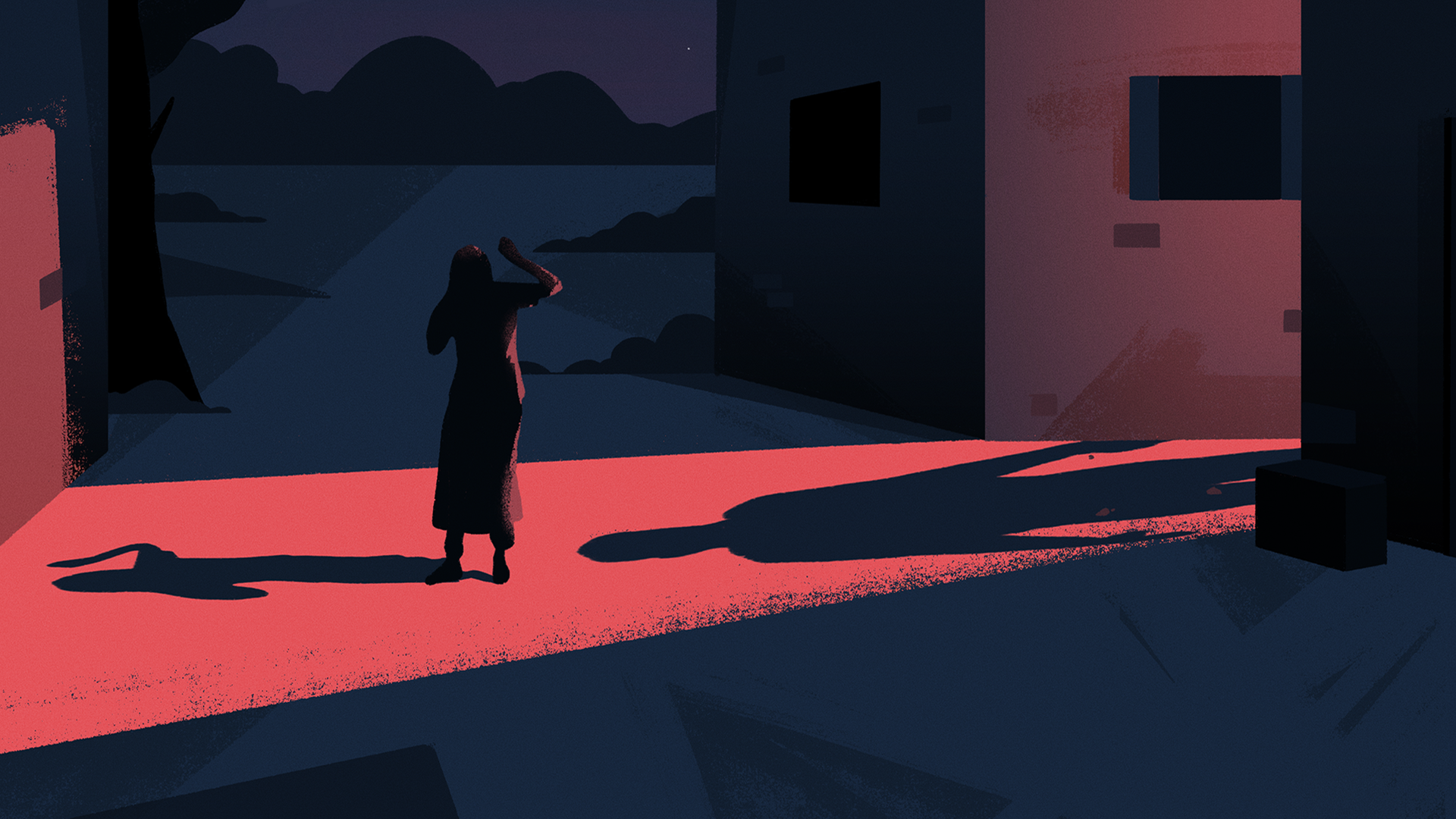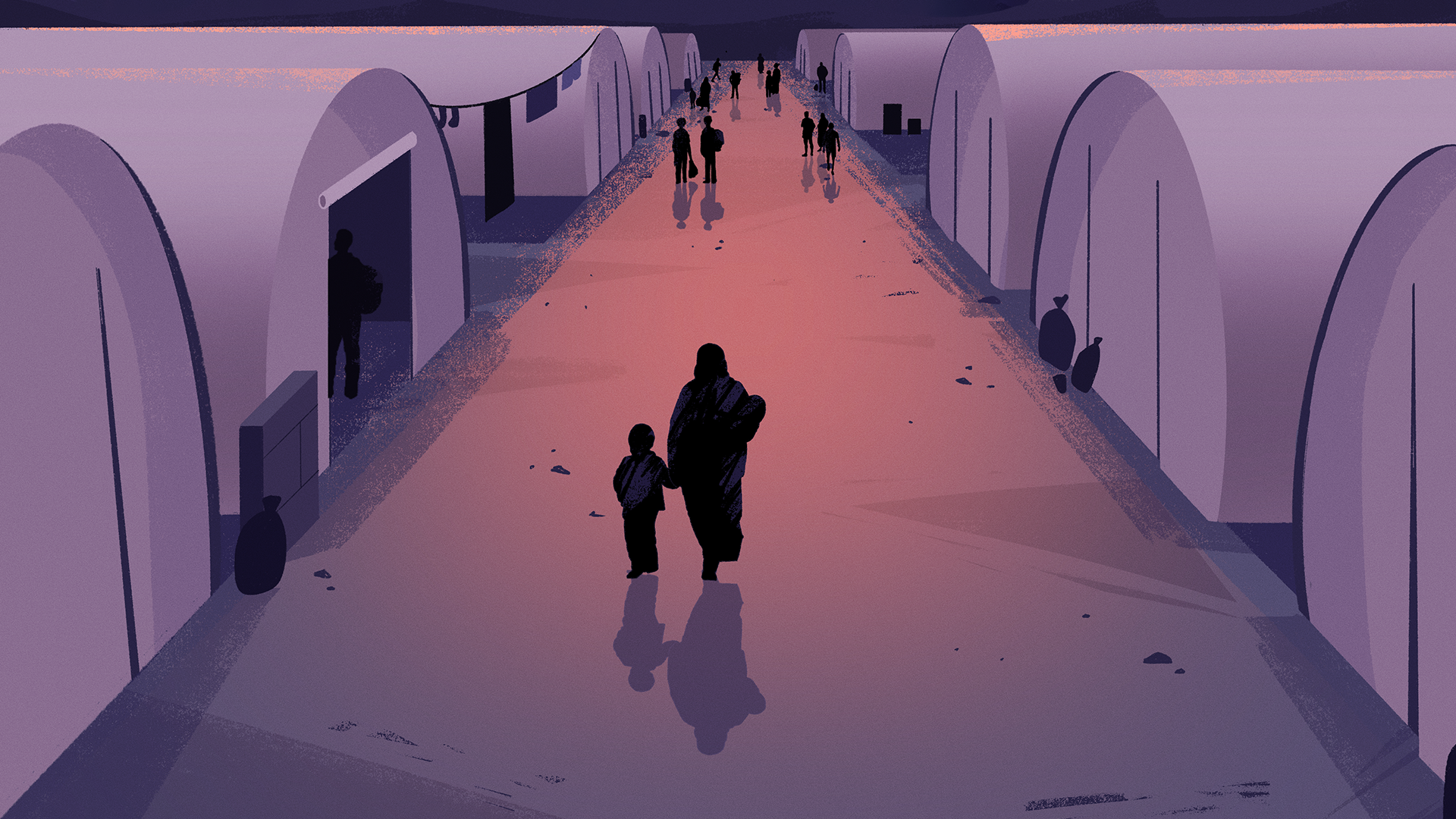REAL-WORLD NARRATIVES & LEARNING
As a narrative-driven game, a key focus during development was creating the individual and emotive moments that capture the story of each scenario, without trivialising the experience. To give the stories authenticity, the disaster scenarios and game events are presented as narratives written from the perspective of other responders on the ground.
Whether working with communities displaced by climate change in the Middle East, responding to civilians caught in the crossfire of a violent conflict in East Africa, or addressing a rapidly escalating pandemic in Latin America, the game engages and challenges humanitarian workers of all experience levels.
To bring these narratives to life, the art direction for the game was purposefully abstracted to remove detailed contextual information. This abstraction helped to focus the attention on the emotional resonance and human impact of each scene as well as the humanitarian cost of every decision made in the game.
During the development of In 90 Days, we worked with a group of experts ranging from senior humanitarians to learning and development experts to ensure that all content includes real-life examples and that the learning outcomes and behaviours are based on the Core Humanitarian Standard and the Core Humanitarian Competency Framework. Based on the appropriateness, timeliness and relevance of their response in the game, players can also earn HPass humanitarian digital badges for accreditation.
The first version of the game is now available to play in English, Spanish, French and Arabic.

